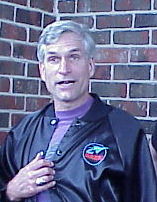A Quote by Ashton Kutcher
If Google decided at any point to publish my search history, or your search history, or anyone's search history, there's a litany of things they could idea police you about, and if it was published, you would be publicly shamed. Everyone would be publicly shamed. But we trust Google, and we trust the people that run that company.
Related Quotes
Competitors argue that Google rigs its search algorithms to demote listings for competing search engines. Many of the allegations of demotion come generally from sites of pretty questionable quality, such as Nextag and Foundem. Some of Google's primary competitors in 'specialized search' clearly place well in search results - Amazon and Yelp.
Google Now is one of those products that to many users doesn't seem like a product at all. It is instead the experience one has when you use the Google Search application on your Android or iPhone device (it's consistently a top free app on the iTunes charts). You probably know it as Google search, but it's far, far more than that.
I wish that Google would realize its own power in the cause of free speech. The debate has been often held about Google's role in acceding to the Chinese government's demands to censor search results. Google says that it is better to have a hampered internet than no internet at all. I believe that if the Chinese people were threatened with no Google, they might even rise up and demand free speech - free search and links - from their regime. Google lives and profits by free speech and must use its considerable power to become a better guardian of it.
I think of Google as a set of overlapping things. It's a consumer platform, consumer phenomenon of which search is its fundamental activity, but there are many other things you can do than search... I think of Google as an advertising company who services the broader advertising industry in the ways that you know.































